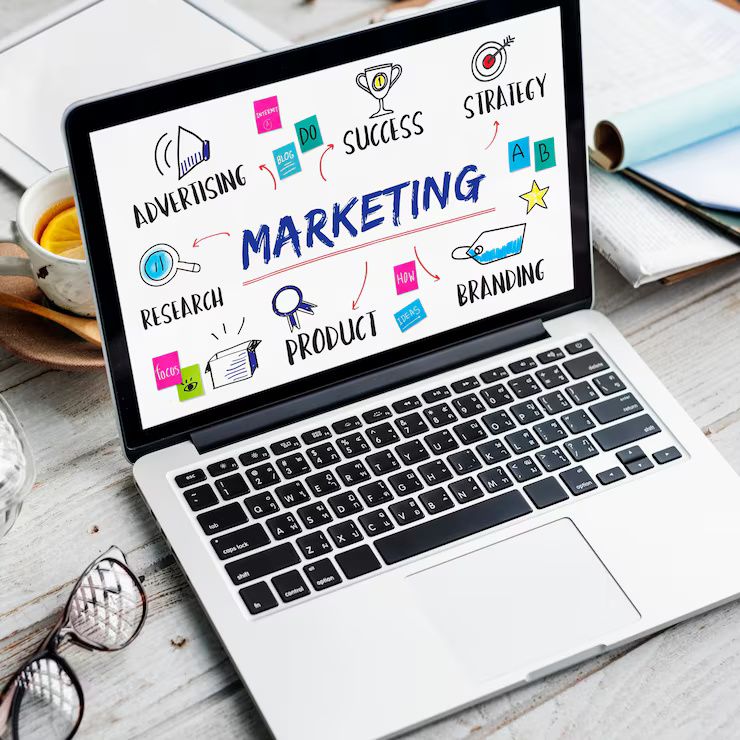How Small Businesses Can Leverage Digital Marketing: A Complete Guide with Insights and Tips
Digital marketing refers to the use of online platforms such as search engines, social media, email, and websites to promote goods or services. It exists because the majority of consumers now spend significant time online, researching products, comparing services, and making purchase decisions
For small businesses, digital marketing offers a cost-effective way to reach potential customers compared to traditional methods like print or television advertising.

Importance
Why it matters today
-
Relevance: Customers expect to find businesses online, whether through a Google search, a Facebook page, or online reviews.
-
Accessibility: Even businesses with small budgets can start with free tools like social media accounts, basic websites, or email marketing.
-
Growth potential: With targeted advertising and analytics, small businesses can expand their reach systematically.
Who it affects
Small businesses across industries—from restaurants and salons to home service providers, e-commerce shops, and freelancers—benefit from building an online presence.
Problems it solves
-
Visibility: Expands brand awareness beyond local foot traffic.
-
Targeting: Allows ads to reach specific age groups, interests, or geographic areas.
-
Tracking: Offers measurable results through metrics like click-through rates, impressions, and conversions.
-
Efficiency: Enables businesses to spend only on audiences most likely to convert.
Recent Updates
-
In 2025, average cost-per-click (CPC) across industries rose to over $5, showing increased competition for digital ads.
-
Conversion rates also improved, with many industries reporting more than 7% on average, meaning businesses are getting better returns despite rising costs.
-
Major shopping seasons like Black Friday in late 2024 saw a spike in ad prices as global retailers invested heavily in online advertising.
-
Free keyword research and SEO tools are gaining popularity, making it easier for small businesses to identify high-value search terms without spending on expensive software.
Laws or Policies
-
Advertising guidelines: Businesses must avoid misleading claims, exaggerated promises, or unauthorized trademark usage. Platforms like Google and Facebook enforce strict ad policies.
-
Privacy regulations: Data protection laws such as GDPR in Europe, CCPA in California, and India’s Digital Personal Data Protection Act require businesses to handle customer data responsibly, gain consent before collecting personal information, and provide options to opt out.
-
Government support: In many countries, small business development programs and MSME initiatives encourage digital adoption by offering training, subsidies, or grants for building websites and using online tools.
Tools and Resources
| Category | Tools & Resources |
|---|---|
| Keyword Research | Google Keyword Planner, Search Console, Moz Keyword Explorer, Keyword Surfer |
| Campaign Management | Google Ads, Microsoft Ads, Facebook Business Manager |
| Content Creation | Canva for visuals, WordPress or Wix for websites, Hootsuite for social scheduling |
| Analytics | Google Analytics, built-in social media insights |
| SEO Optimization | Yoast SEO plugin, site audit tools, free SEO checkers |
| Planning Templates | Marketing plan templates, campaign budget calculators, content calendars |
FAQs
1. What is the first step for a small business starting digital marketing?
Start with a professional, mobile-friendly website and claim your free Google Business Profile. This helps you appear in local search results and map listings.
2. Is digital marketing expensive?
It can be scaled to fit any budget. Businesses can begin with free tools like social media posts or low-budget ads and expand gradually as results appear.
3. How do I know if my marketing is working?
Track metrics like website visits, ad click-through rates, conversions, and cost per acquisition using tools such as Google Analytics or the reporting dashboards of ad platforms.
4. Which channel should I use: search, social, or email?
It depends on your audience:
-
Use search ads when customers are actively looking for your services.
-
Use social media to build awareness and engage with a community.
-
Use email for customer retention and repeat sales.
5. How can I reduce ad costs?
-
Improve ad relevance and landing page quality.
-
Use negative keywords to filter out irrelevant clicks.
-
Regularly monitor campaigns and adjust budgets to focus on top performers.
Final Thought
Digital marketing is no longer optional for small businesses—it has become a key factor in staying visible and competitive in today’s connected world. While costs and strategies continue to evolve, the tools and resources available make it possible for even the smallest businesses to establish an online presence, reach the right audience, and measure their success effectively. By starting with simple steps, staying informed about regulations, and making use of free or low-cost platforms, small businesses can leverage digital marketing as a practical pathway to growth and long-term sustainability
